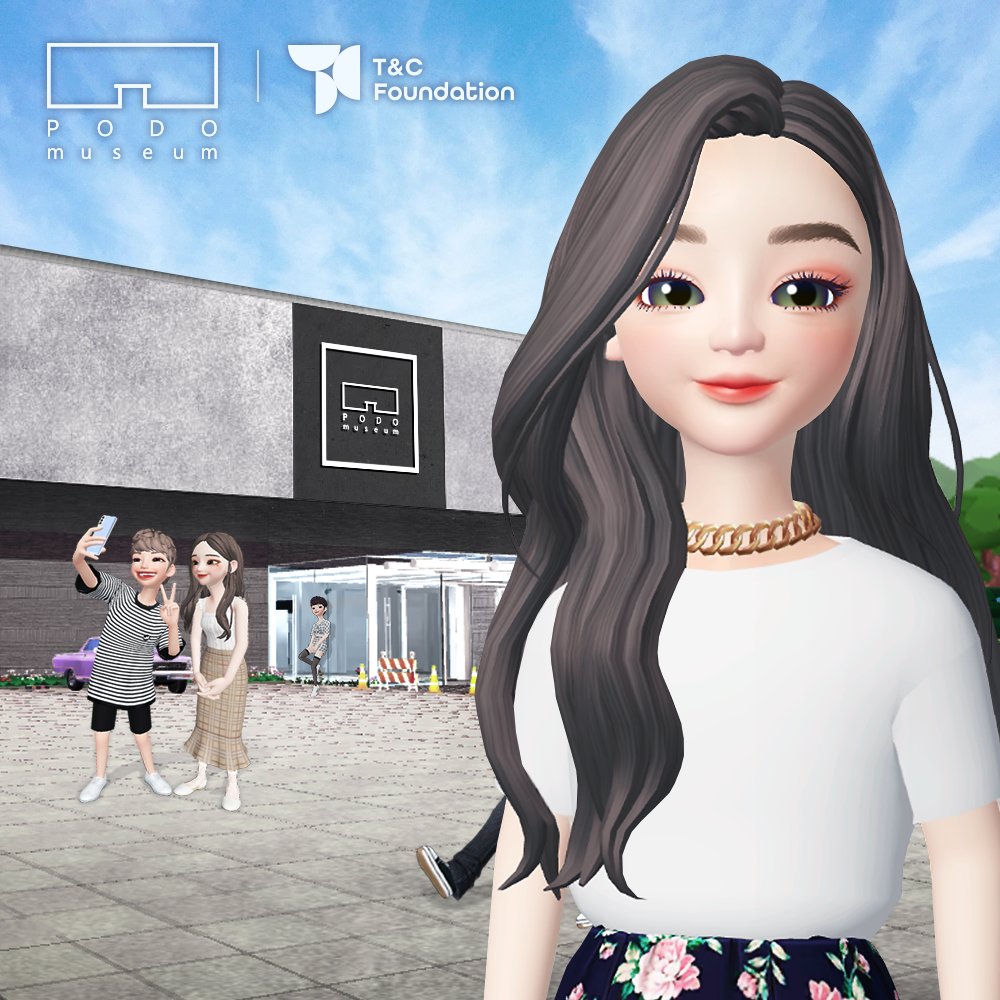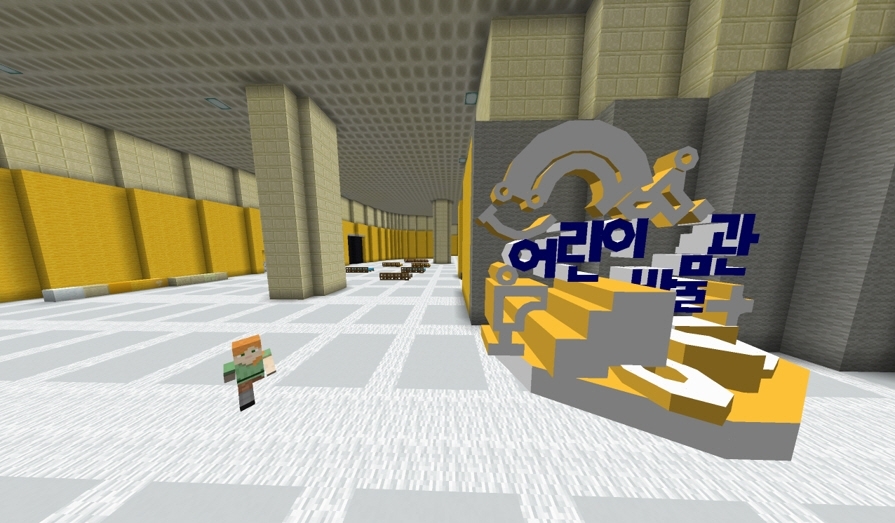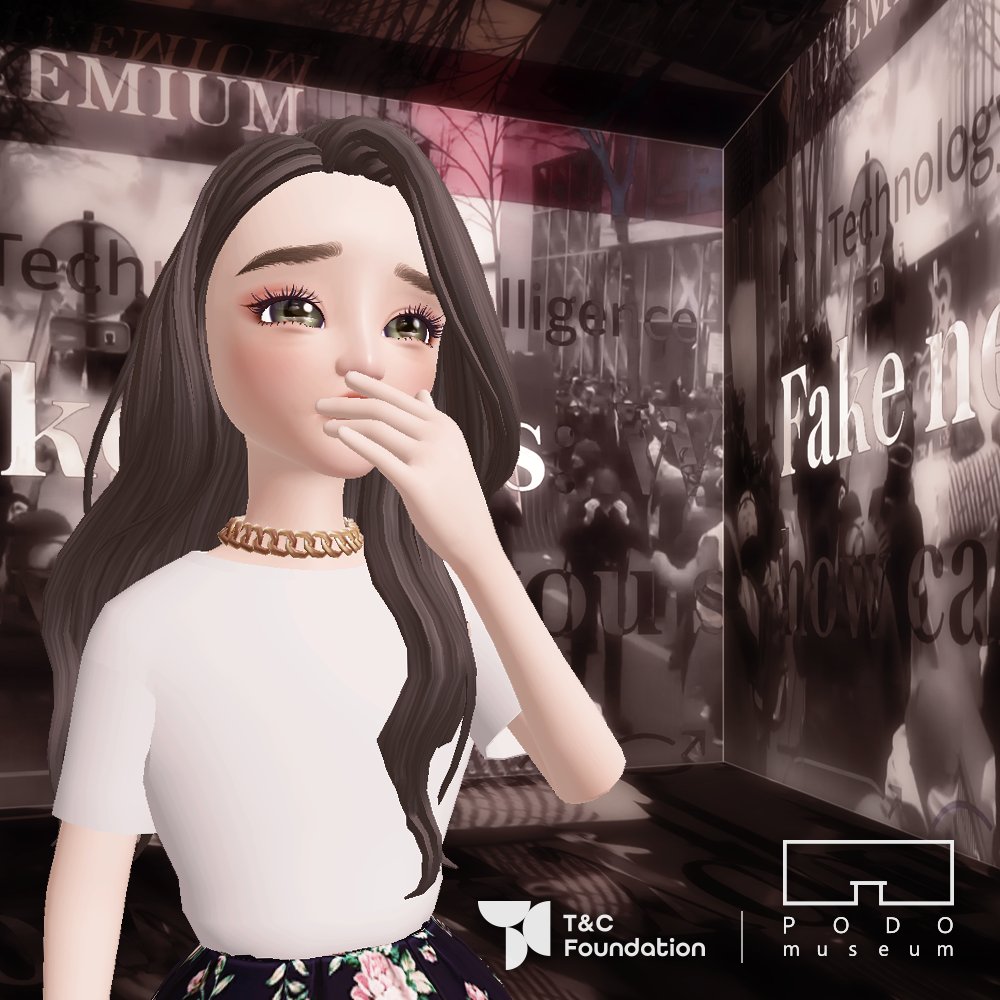 |
Podo Musuem’s metaverse server on Naver’s Zepeto (Podo Museum) |
Beginning with the National Museum of Korea’s decision to shut down in February last year due to COVID-19, museums around the country have been going back and forth between opening and closing in response to the ongoing virus situation.
This has led museums to come up with new ways of presenting their exhibitions to the public virtually.
A notable alternative that many museums have recently come up with for the COVID-19 era is the use of metaverse.
A combination of “meta” and “universe,” the term refers to a virtual world shared by people from the real world. The digital universe has gained traction worldwide under the COVID-19 pandemic lockdown mainly among millennials and Gen Z, which indicates people born between the 1980s and the 2010s.
The term also drew global attention after Facebook CEO Mark Zuckerberg emphasized the importance of the metaverse during his recent conference call with analysts to discuss the company’s latest quarterly results. Zuckerberg talked about technology as the successor to the mobile internet.
Hongik University Visual Communication Design professor Kim Hyun-suk views applying metaverse technology to museums in a positive light as it allows the audiences to enjoy the exhibition with others.
“After COVID-19 broke out, many different museums started creating contactless museums such as VR museums and online museums,” Kim told The Korea Herald. “However, perusing different items is not the only factor that is crucial when enjoying an exhibition.”
Kim added that the shared experience at museums with friends and family through the process of discussing opinions and feelings are also important.
“We say that the Netherland’s national museum has the best VR exhibition. But even that, when you access the server, it makes you feel like you are alone in the museum. Of course, there are also upsides to it, as people can look into items closely by themselves. But the experience that people have when visiting real museums with others cannot be fulfilled through that,” Kim added.
How is metaverse being used in Korean museums?
 |
NMK Children’s Museum’s Minecraft server (NMK) |
In December last year, the National Museum of Korea set up a server, or a huge online world, for kids on Minecraft -- the most popular video game of all time. The metaverse server allows its participants to visit the NMK Children’s Museum, an identical replica of the actual one located in Yongsan-gu, Seoul. Inside the building, they can enter different exhibition halls to learn and experience Korean history and culture in a fun way by having to clear 10 missions.
“After our museum shut down last year we searched for ways to create online content,” said Lee Sang-mi, NMK Children’s Museum Division associate curator. “We tried making videos which feature kids experiencing the museum. But children didn’t seem to have much interest in watching others experiencing things.”
Lee said the children’s museum received much positive feedback after it launched the Minecraft server.
“According to our survey, more than 90 percent of the users responded positively to the server,” Lee said, many of which were parents.
“Because most of the facilities had to shut down and the kids could not go to school, parents were having some difficulties at home at the time. So their reviews were very emotional,” Lee said.
The children’s museum is planning to launch a new Minecraft server in 2022.
 |
Podo Musuem’s metaverse server on Naver’s Zepeto (Podo Museum) |
Last month, Podo Museum on Jeju Island also opened a server on Naver’s metaverse platform Zepeto, which allows audiences to enjoy its exhibition titled “The World We Made.”
“We see that our metaverse server is meaningful because it provides an opportunity to people who cannot visit the museum and enjoy the offline exhibition of ‘The World We Made,’” T&C Foundation spokesperson Shin Eun-hye said. “Over 80,000 people visited our server and there were a lot of photos that the users posted after visiting the server.”
Shin added that these photos are important because they are an indicator of how users are enjoying the server.
“The avatars take photos in front of our artworks. They seem to enjoy it that way,” she added.
Attracting future generationsOne of the main reasons museums choose to apply metaverse technology to showcase their content is that it is becoming popular among the young generation.
US metaverse giant Roblox had over 42 million daily users in the first quarter of 2021, according to Statista. The data tracker says 55 percent of Generation Z in the US have an account on Roblox.
Korea’s top metaverse platform, Zepeto, was created by IT behemoth Naver. The number of accumulated users on Zepeto surpassed 200 million, with 80 percent of them in their 10s and 20s, according to Naver.
“The users are not current museumgoers. They are MZ generations who might think that museums are boring. We started the metaverse project because we see that the platform can provide those young people with a new way to look at the museum,” NMK Digital Museum Division curator Chang Eun-jeong said.
Naver said the metaverse is popular among younger users as they consider it a casual community in which they can hang out with friends.
“Young kids are used to using this kind of platform. They talk with their friends and even travel with their friends on the platform,” Naver spokesperson Song Eui-young told The Korea Herald.
Korean museum operators also see that the metaverse platform can promote their exhibitions overseas.
“Since we exhibit artworks, foreigners can also enjoy it without language barriers,” Podo Museum spokesperson Shin said.
The NMK, which will open a server on Zepeto this year, also hopes that its exhibitions will appeal to young global audiences and plans to create a map that can be enjoyed worldwide.
“Everyone is familiar with the painting ‘Mona Lisa.’ So when people visit the Louvre Museum many people line up to see the painting,” NMK curator Chang said.
The curator explained that this shows the importance of promoting masterpieces that are at museums.
“We see that once the audiences become familiar with the content and space, they are more likely to visit our museums offline,” Chang said. “Just because they hung out in our museum on the metaverse today we know that they will not immediately think about buying a ticket and visiting the museum tomorrow. But in the long term, we see that it will be effective.”
The NMK museum curator added that it is also similar to why luxury brands like Channel and Gucci are creating servers on metaverse.
“They consider the users as their future customers,” she said.
On Aug. 15, 2021, The Korea Herald celebrates its 68th anniversary as South Korea’s No. 1 English-language daily. To mark the day in a time of pandemic and turmoil, The Korea Herald has prepared a series of stories on the challenges that we face and the prognosis for life with, or after COVID-19. -- Ed.
By Song Seung-hyun (
ssh@heraldcorp.com)







![[Exclusive] Hyundai Mobis eyes closer ties with BYD](http://res.heraldm.com/phpwas/restmb_idxmake.php?idx=644&simg=/content/image/2024/11/25/20241125050044_0.jpg)
![[Herald Review] 'Gangnam B-Side' combines social realism with masterful suspense, performance](http://res.heraldm.com/phpwas/restmb_idxmake.php?idx=644&simg=/content/image/2024/11/25/20241125050072_0.jpg)

